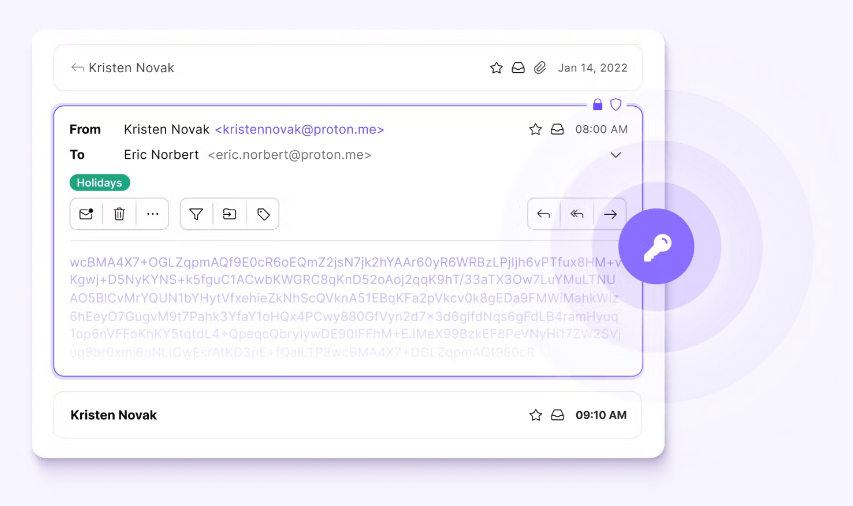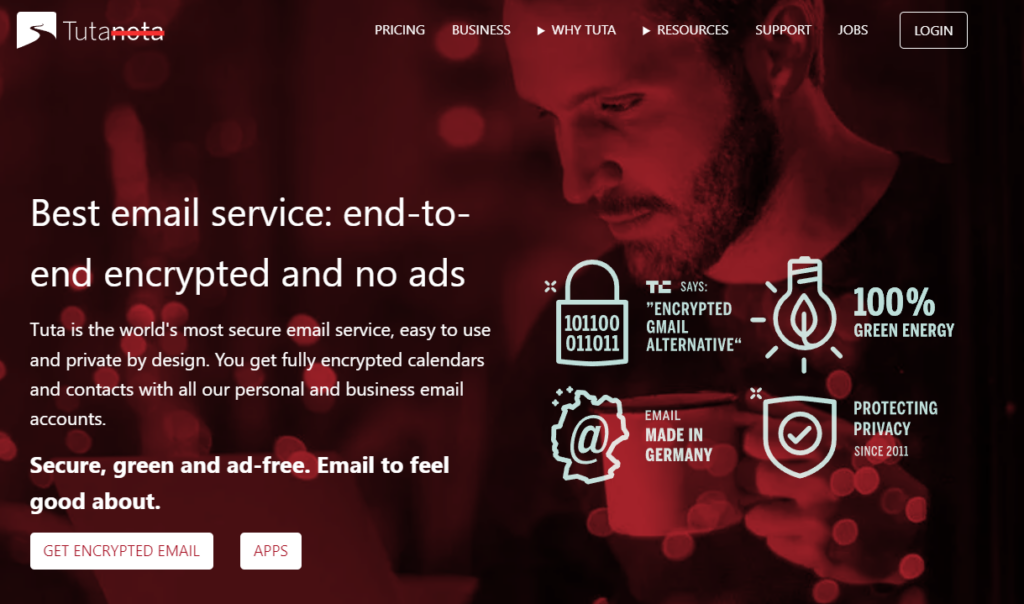Last Updated on November 19, 2023 by VPNPioneer
Even though Yahoo, Microsoft, and Google are big names, surprisingly, they aren’t the safest email options if you care about the privacy of your messages. Check out the top five best email providers to keep your personal information secure.
1. Zoho Mail
While not a household name, Zoho Mail stands out as one of the most secure options for online information exchange. With servers worldwide, it prioritizes data encryption and user-friendly features.

Beyond standard email services with robust spam and mail filters, Zoho Mail offers extras like a calendar, contract portal, and task manager. However, its primary strength lies in security. Zoho Mail provides an encrypted environment, ensuring data remains safe whether in transit or at rest. Even the most skilled hackers would face significant challenges infiltrating it, with almost no chance of success.
Although Zoho can access stored data, strict protocols must be followed, ensuring privacy. Zoho Mail offers three paid plans:
- Mail Lite – with 5GB of storage per user.
- Mail Premium – with 50GB per user.
- A customizable plan for users seeking additional company solutions, like web-based word processing.
Zoho provides various IT solutions, including a password manager, making it most effective when combined with other products. This service includes secure data centers accessible only through biometric authentication.
Security features extend further, encompassing malware and spam protection, along with end-to-end encryption on all data. Zoho Mail’s level of security is unmatched in other services.
2.ProtonMail
Although a relatively new player, ProtonMail has quickly become a standout in the field. Established in 2014 at the European Organization for Nuclear Research, it has gained prominence as a secure email provider with end-to-end encryption and a noteworthy zero-access guarantee.

ProtonMail emerged in response to Edward Snowden’s damaging leaks in 2013, aiming to enhance email security. Its data centers are securely located in an underground bunker in Switzerland, designed to withstand even a nuclear attack – a testament to the seriousness with which ProtonMail safeguards information.
A standout feature is ProtonMail’s ‘self-destructing’ email service, automatically removing certain emails from the recipient’s inbox after a set time. Before opting for this service, users are cautioned not to share sensitive information.
ProtonMail offers a free plan with limited storage and messages, suitable for individual users. The free plan includes 500MB of email storage and limits users to 150 messages a day. For those requiring more, ProtonMail provides various premium plans to choose from.
3. Tutanota
With a user base exceeding 2 million, Tutanota stands out as an open-source, end-to-end secure email provider, offering unmatched encryption levels.

Headquartered in Germany, Tutanota combines top-notch mail security with user-friendly features. Its web interface is straightforward, allowing users to easily toggle between private and non-private emails with a single click.
Despite its strengths, Tutanota has a notable drawback – it lacks a search option, making it time-consuming to find previous emails, especially in high-volume scenarios.
Tutanota takes privacy seriously by encrypting the sender’s name, receiver, and subject line. To enhance user protection, emails and IP addresses are removed from the heading metadata.
Adding to its appeal, Tutanota is accessible on Windows, macOS, iOS, and Android platforms.
4.PrivateMail
PrivateMail hosts its servers in the United States, making it subject to legal restrictions that may impact its privacy compared to providers in countries like Germany or Switzerland.

Despite this, PrivateMail offers end-to-end encryption and highly secure cloud storage. The service maintains robust security practices.
A standout feature is the cloud storage, allowing users to synchronize files across different devices and with a specific computer folder. Additionally, there’s a useful business calendar for business-oriented users.
PrivateMail Standard provides 10GB each of email and cloud storage, while PrivateMail Pro offers 20GB for both. For larger businesses, there’s a plan with up to 100GB of storage and custom domain options.
5. Posteo
Lastly, there’s Posteo, another German-based email service catering to both businesses and individuals. It’s particularly well-regarded among digital crusaders and activists. While it doesn’t provide end-to-end encryption like some others, all data on its servers is secure, whether at rest or in transit.

Adding an extra layer of security, Posteo uses a technology called DANE (DNS-based Authentication of Named Entities) to protect against hackers attempting to impersonate the sender or recipient and gain access to sensitive information.
Posteo doesn’t offer a free version, but for a small monthly fee, users can access all the security features it provides.
Conclusion
In conclusion, if you’re seeking a secure method for sending or receiving emails online, any of these five mail services will meet your needs. The decision is yours; prioritize your security.
